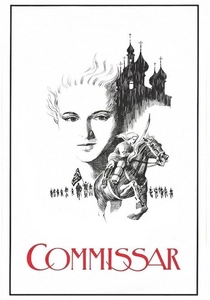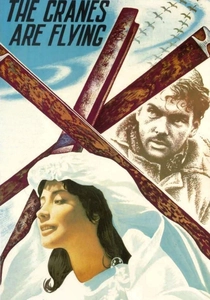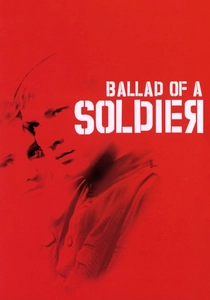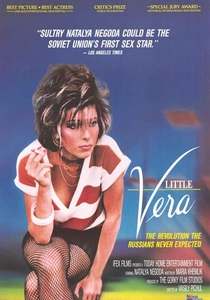This curated selection of Soviet films delves into the sensitive topic of assault, providing a window into the societal and cultural reflections of the era. These films not only entertain but also provoke thought, offering a unique perspective on human resilience, justice, and the quest for redemption. Each film in this list has been chosen for its nuanced portrayal of these themes, making it an invaluable resource for those interested in Soviet cinema and its exploration of complex human experiences.

The Ascent (1977)
Description: While primarily a war film, it includes scenes of assault that underscore the brutality of war and its impact on civilians, particularly women.
Fact: Larisa Shepitko, the director, was one of the few female directors in Soviet cinema, and this film won the Golden Bear at the Berlin International Film Festival.
 Watch Now
Watch Now

The Commissar (1967)
Description: This film, set during the Russian Civil War, explores the life of a female commissar who, while pregnant, is forced to stay with a Jewish family. The film subtly addresses themes of assault and its aftermath through the character's interactions and the family's dynamics.
Fact: The film was banned in the Soviet Union for 20 years due to its sensitive content and was only released internationally after its director, Alexander Askoldov, was expelled from the Communist Party.
 Watch Now
Watch Now

The Cranes Are Flying (1957)
Description: The film includes a scene where the protagonist is assaulted, reflecting the chaos and moral decay during World War II.
Fact: It won the Palme d'Or at the Cannes Film Festival, making it one of the most celebrated Soviet films internationally.
 30 Days Free
30 Days Free

The Ballad of a Soldier (1959)
Description: While not explicitly about assault, the film's narrative includes the harsh realities of war, including scenes that suggest the vulnerability of women to assault during wartime.
Fact: The film was nominated for an Academy Award for Best Original Screenplay, highlighting its international recognition.
 30 Days Free
30 Days Free

Little Vera (1988)
Description: A coming-of-age story set in the late Soviet era, where the protagonist Vera faces various forms of abuse, including sexual assault, reflecting the societal issues of the time.
Fact: This film was one of the first Soviet films to openly discuss topics like sexual assault, drug use, and family dysfunction, marking a significant shift in Soviet cinema.
 30 Days Free
30 Days Free

The Story of Asya Klyachina (1967)
Description: The film portrays the life of Asya, a woman who endures multiple hardships, including sexual assault, in a rural Soviet setting, highlighting the plight of women in a patriarchal society.
Fact: The film was shelved for many years due to its controversial content and was only released after the director, Andrei Konchalovsky, left the Soviet Union.
 30 Days Free
30 Days Free

The Edge (1990)
Description: This film deals with the aftermath of sexual assault, focusing on the psychological and social repercussions for the victim in a small Soviet town.
Fact: It was one of the last films made before the dissolution of the Soviet Union, reflecting the changing attitudes towards such sensitive topics.
 30 Days Free
30 Days Free

The Thief (1997)
Description: Although set post-Soviet era, it captures the lingering effects of Soviet societal norms, including scenes that imply sexual assault, reflecting on the legacy of abuse.
Fact: The film was critically acclaimed and won several awards, including the Nika Award for Best Film.
 30 Days Free
30 Days Free

The Return (2003)
Description: While not directly about assault, the film's themes of fatherhood and masculinity touch upon the broader societal issues of violence and control, which can be linked to assault.
Fact: This was the debut feature film of director Andrey Zvyagintsev, which won the Golden Lion at the Venice Film Festival.
 30 Days Free
30 Days Free

The House I Live In (1957)
Description: This film indirectly addresses the theme through the story of a woman who faces various forms of oppression, including implied sexual assault, in her struggle for independence.
Fact: It was one of the first Soviet films to openly critique the treatment of women in society.
 30 Days Free
30 Days Free









